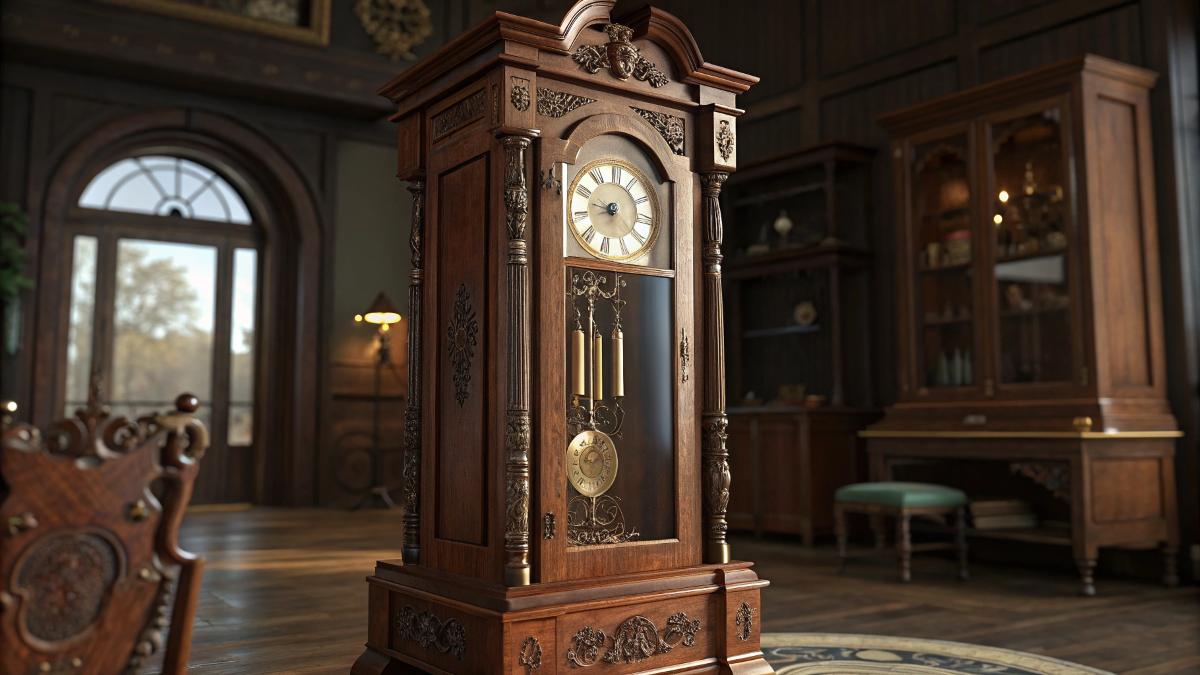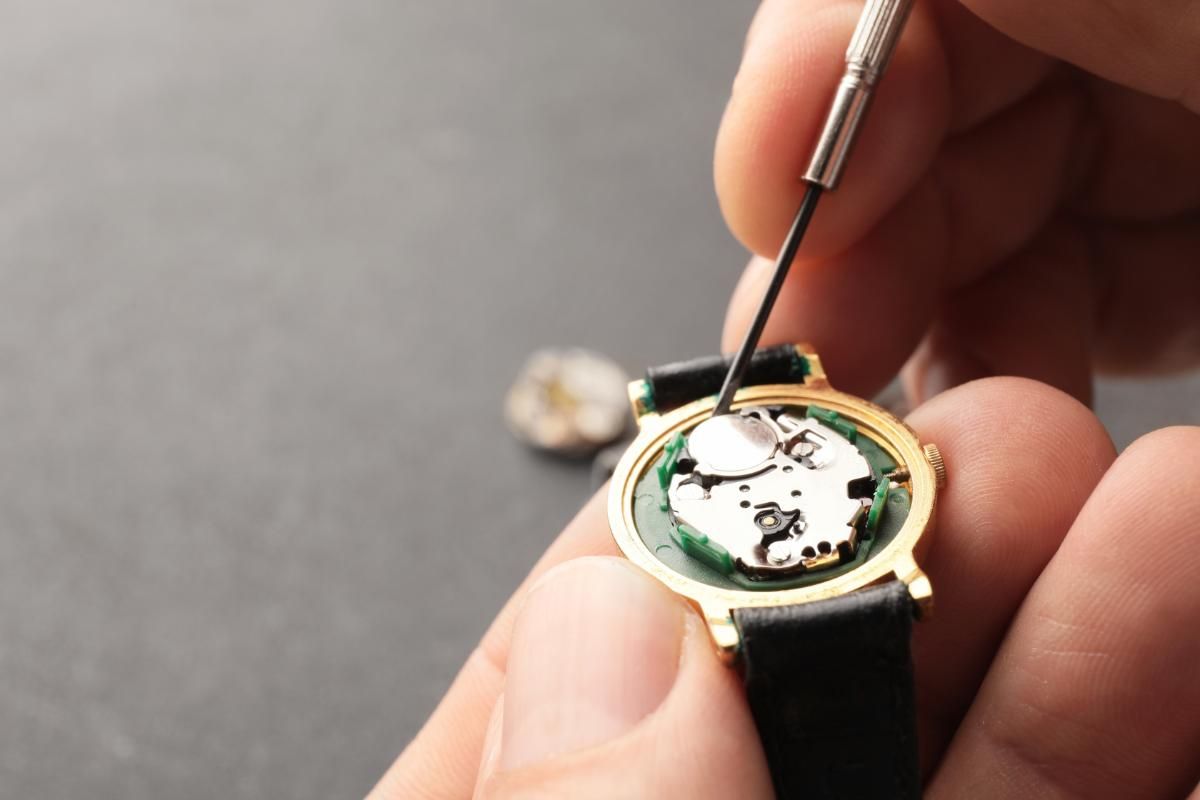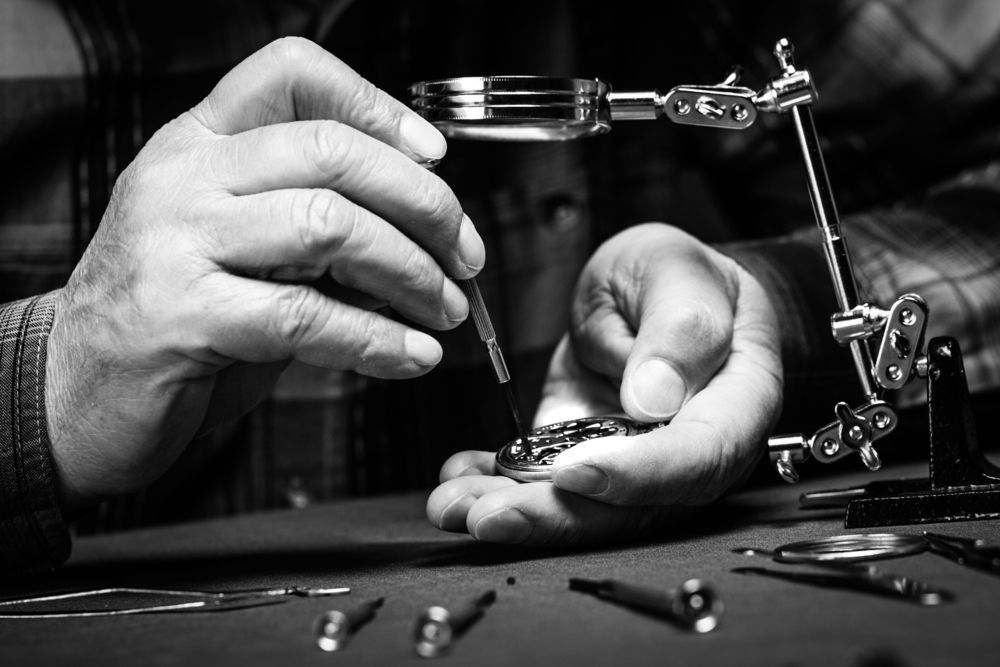How Often Should You Replace a Watch Battery?
Watches have long been more than just timekeeping devices. They're fashion statements, status symbols, heirlooms, and functional tools. Whether you own a luxury watch, a beloved everyday timepiece, or a multifunctional sports model, keeping it ticking is crucial. One of the simplest yet most common maintenance needs is to replace the watch battery. But how often should you replace a watch battery? What signs indicate that it's time? And what's the safest way to go about it?
The Average Lifespan of a Watch Battery
A typical quartz watch battery lasts between 1 to 5 years, depending on several factors:
- Battery type and quality
- Watch brand and complexity
- Features like backlighting, alarms, or chronographs
- Environmental factors (temperature, humidity, etc.)
Standard analog watches often boast battery lifespans of 2 to 3 years, while digital watches or models with multiple features may require more frequent replacements—closer to every 12 to 18 months.
Luxury watches that use high-performance or lithium batteries might stretch closer to the 5-year mark. However, this doesn't mean you should wait until the watch stops entirely. Regular maintenance is essential to avoid battery leakage and internal damage.
Factors That Affect Watch Battery Life
Several elements influence how long your watch battery will last:
1. Watch Type and Functionality
Watches with extra features—like LED lights, chronographs, multiple alarms, or even solar-powered enhancements—draw more energy. A watch with a simple analog display requires less power than a smartwatch or a multifunction sports watch.
2. Battery Size and Chemistry
Not all watch batteries are created equal. Some use silver oxide, while others rely on lithium or alkaline chemistries. Silver oxide batteries tend to last longer and are often used in higher-end timepieces.
3. Frequency of Use
Believe it or not, how often you wear your watch affects the battery. If a watch remains unused for long periods, it may drain the battery as certain internal systems stay active, especially in digital models.
4. Temperature Extremes
Extreme heat or cold can impact battery performance and lifespan. Prolonged exposure to harsh conditions can cause the battery to degrade prematurely.
Warning Signs That Your Watch Battery Is Dying
While a completely dead watch is an obvious sign, there are other subtle indicators that your watch battery is on its way out:
- Second hand skipping every few seconds: Many quartz watches give an early warning by having the second hand jump rather than tick smoothly.
- Dim or erratic digital display
- Inaccurate timekeeping
- Non-functional features like alarms or lights
- Condensation inside the case, which may indicate battery leakage or internal seal failure
Acting on these early signs can help prevent more expensive repairs down the line.
Why Timely Replacement Matters
Delaying watch battery replacement can lead to more than just a stopped watch:
1. Battery Leakage
Old batteries can leak harmful chemicals, corroding internal components and damaging the delicate mechanics. This can turn a simple fix into a costly repair or total replacement.
2. Pressure Loss in Water-Resistant Watches
For water-resistant models, a dying battery replacement is an opportunity to test and restore seals and gaskets. Delaying this can compromise your watch's ability to resist moisture.
3. Preservation of Heirlooms
If your timepiece holds sentimental or collectible value, timely battery care ensures its long-term preservation.
How Often Should You Replace a Watch Battery?
The safest rule of thumb is to replace the battery every 1 to 3 years, even if the watch hasn't stopped. For more advanced or multifunction watches, a yearly check-up is wise.
Recommended Intervals by Watch Type:
Note: Smartwatches aren't covered here in detail because they typically don't use standard watch batteries and instead use rechargeable lithium-ion batteries.
Why You Should Leave It to the Professionals
1. Correct Tools and Expertise
Watch professionals use industry-grade tools that prevent scratching, misalignment, or damage to gaskets and movement.
2. Proper Battery Identification
Each watch model requires a specific battery type. Pros will ensure compatibility and quality.
3. Water Resistance Testing
For water-resistant watches, resealing and pressure testing are crucial. These cannot be accurately done at home.
4. Inspection for Internal Issues
Professionals can check for other problems like worn gears, corroded contacts, or moisture damage—early detection saves on future repairs.
5. Warranty Preservation
For high-end or designer watches, a DIY battery swap may void your warranty.
Common Watch Battery Myths
Let's debunk some myths that often confuse watch owners:
Myth #1: "If the watch is still running, the battery's fine."
False. Batteries can lose voltage and run inefficiently before the watch stops, causing inaccurate timekeeping and stress on the movement.
Myth #2: "I can use any battery that fits."
Using the wrong battery can cause shorts, swelling, or even leakage. Always use the correct voltage and size.
Myth #3: "Changing the battery voids my warranty."
Only if done improperly. Professional services like Chicago Clock Company ensure your warranty remains valid.
Myth #4: "All batteries last the same amount of time."
Battery life depends on the type, quality, and usage of your watch.
The Right Way to Care for Your Watch Battery
To extend the life of your battery and ensure your watch performs well:
- Have your watch inspected annually by a professional.
- Store watches away from moisture and extreme heat.
- Avoid using alarms, backlights, and chronographs more than necessary.
- Replace batteries promptly when signs of low power arise.
Chicago Clock Company: Your Local Expert in Watch Battery Replacement
If you're unsure when or how to replace watch battery components safely, don't leave your treasured timepiece to chance. At Chicago Clock Company, we specialize in:
- Watch battery replacements (standard and premium models)
- Water-resistance testing
- Clock and watch repairs
- Vintage and heirloom watch care
- Clock and timepiece sales
We've built our reputation on decades of expert craftsmanship and dependable service. Our team handles everything from modern quartz watches to delicate vintage pieces with precision and care.
Why Choose Us?
- Free estimates while you wait
- Professional-grade tools and components
- Fast, friendly service
- Transparent pricing
- Appointments available today
Final Thoughts
Your watch is more than just a way to tell time—it's a statement, an investment, and, in many cases, a cherished keepsake. Don't let a dead or leaking battery put that at risk. Knowing how often to replace a watch battery and recognizing early warning signs will help protect your investment and keep your timepiece ticking for years to come.
And when it's time for a replacement, don't guess—trust the experts.
Contact Chicago Clock Company Today
Ready to have your watch battery replaced or need professional repair services? Call us today to schedule your appointment.
Let our team of professionals bring your timepiece back to life with expert battery replacement and care. Free estimates while you wait—fast, easy, and dependable.
Call now!











